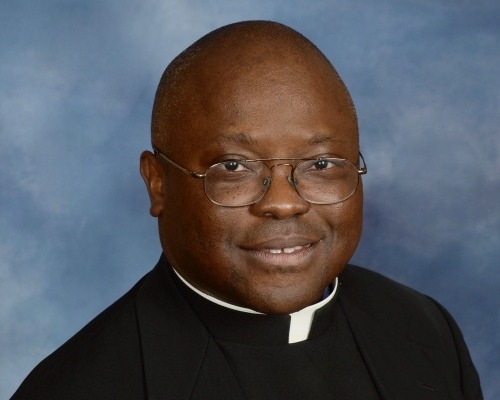
A platform that encourages healthy conversation, spiritual support, growth and fellowship

NOLACatholic Parenting Podcast
A natural progression of our weekly column in the Clarion Herald and blog

The best in Catholic news and inspiration - wherever you are!
A sense of belonging: The experience of a foreign-born priest
-

We were lining up for the procession at the installation Mass of Archbishop Gregory Aymond on Aug. 20, 2009, when I heard someone say, “You don’t belong here.”
It was Father José Lavastida, the rector of Notre Dame Seminary, who went on to say: “You are not a guest any more. Come over here with us. You are now one of us.”
He wanted me to join him and the New Orleans priests at the front of the line rather than among the guest priests at the back of the line. Although I had already been on the faculty of Notre Dame Seminary for a few weeks, Father José’s invitation made me realize that I now belonged to the presbyterate of New Orleans.
Historically, Louisiana has received many foreign-born priests. First, it was European priests, particularly the Irish; then in the last century, more priests came from Asia, particularly from the Philippines, India and Vietnam; and most recently, some have come from Africa and South America.
These priests have come as members of religious congregations, others as incardinated priests and still others, like me, as “on-loan” or as Fidei Donum priests (based on Pope Pius XII’s 1957 encyclical with the same name).
Given the diverse provenance, manner of arrival, status and ministries of foreign-born priests, their experiences are necessarily diverse. But a common denominator of their experience is the existential question or concern of belonging. This concern is somewhat alleviated when the priest is warmly received by his brethren, as I was. But the priest himself must also work hard at making himself belong in his new home.
In my experience, I have had to learn the religious culture of Louisiana, such as understanding the premier place of the devotion to Our Lady of Prompt Succor. And because food is so central to culture, I have also slowly developed a taste for the delicacies of South Louisiana, such as shrimp, crawfish, crab (I am still holding off on the oysters), dishes that would be considered non-edible bugs back home.
Also, besides Mardi Gras, I can name one or two of the plethora of New Orleans festivals.
One’s belonging is sometimes called into question when parishioners say, “You have an accent.” What I often want to say in response is: “And so do you.” But I understand what the remark is trying to say, namely, a request for me to speak more clearly and more slowly so that I can be understood better. It is not a request for me to do away with my accent, which is quite impossible and even undesirable, since it is part of who I am.
Besides better articulation, I also try to adopt “Americanisms” in my speech, drawing on the rich treasury of sports and food metaphors, as well as adopting the more informal American style of delivery.
So, where do I belong? Being a foreign-born priest gives me the privilege of belonging to two worlds and cultures, operating out of two (or more) languages and histories. And this experience is not a case of being bipolar or a case of serving two masters, but rather a case of drawing from the immense and diverse ways of being Catholic.
It is my hope that my double belonging also benefits those whom I serve, bringing as I do, an additional perspective, a different way of belonging to the one, holy, Catholic and apostolic Church.
Father Deogratias O. Ekisa, STD, is a priest of the Archdiocese of Tororo in Uganda. He serves as vice rector of configuration formation at Notre Dame Seminary.




